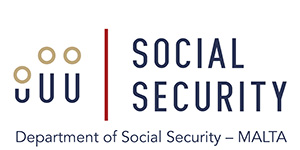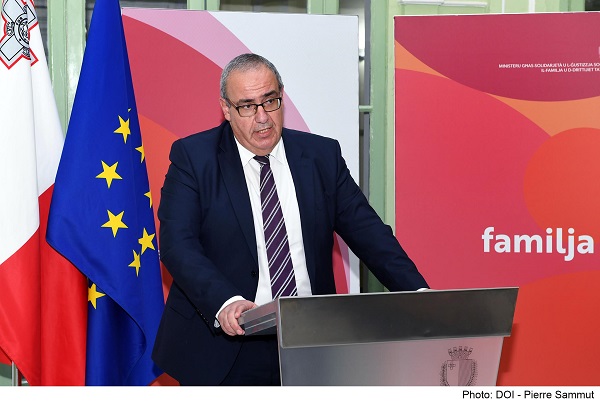Strengthening the Workers- More employments and benefits, less social dependence
During the press conference forming part of the ‘Strengthening the Worker’ campaign Hon. Michael Falzon, Minister for Social Justice and Solidarity, the Family and Children’s Rights stated “Throughout the last eight years we have changed the culture and mentality associated with the labour market and we have succeeded in convincing people that work pays. There are many reasons that have led to this result, but primarily among them is the fact that we created more work opportunities accompanied by social measures such as Tapering of Benefits and free Childcare.”
Minister Falzon explained how in 2013 there were a large number of people on unemployment benefits and others who were dependent on social assistance. Thus there was the need to gradually introduce a series of measures designed on the Making Work Pay principle.
The Tapering of Benefits was introduced in 2014 so that those relying on social assistance for at least two years would enter the work force without losing benefits immediately, but in a gradual manner over a period of three years.
Beneficiaries remain entitled to 65% of assistance for the first year, they receive 45% in the second year and 25% in the third year. Meanwhile employers are also incentivised with a 25% benefit for three years at the same time.
In 2018 the Tapering scheme was improved so that the timeframe when an individual would have had to be on social assistance was reduced from two years to one.
The scheme was also opened for single parents with children under the age of 23 who work for a minimum of 10 hours per week or in such cases where single parents get married, enter a civil union or cohabitate officially with someone who is working.
During the first year of the scheme in 2014 there were 588 individuals who benefitted, with the higher number of beneficiaries being 3,600 in 2017. Over 80% of participants remained in the workforce after the period of three years of the scheme were over. More than 70% of those who entered this scheme were women.
The In-Work Benefit which was introduced in 2015 for working parents who have children under the age of 23 is another important measure. This benefit was quite popular, so much so that there were 1,359 beneficiaries in 2015, the number of beneficiaries rose to 5,337 in 2020.
More families have begun to benefit from higher benefit rates after the threshold was raised. Each family entitled to the In-Work Benefit was paid a supplement of €250 in 2020. Since its introduction, over 7,400 families have benefitted from this benefit at some point and this has left €16.5m in their pockets.
The Free Childcare Service is still being provided at no cost to parents who are working or studying. This way families can be in a better position to make the most of the potential of each family member while finding a balance between family and work responsibilities. The service for each boy and girl comes at a cost of approximately €4,000 per year, these are all monies saved by the families. The number of children at these childcare centres has increased from 3,856 in 2014 to 6,702 in 2020.
The positive results yielded by these measures is clearly visible in a short period of time, also thanks to the contributions they have made.
The number of individuals on social assistance in 2020 has gone down to 4,598: a reduction of over 5,400 since 2014. The number of persons receiving unemployment assistance has also decreased by around 5,000: from 6,119 to 1,107 in seven years. Those persons on Tapering of Benefits increased from 588 in 2014 to 3,600 in 2017, while in 2020 there were just over 2,000 persons. Those benefitting from In-Work Benefit have increased from 1,359 in 2015 to 5,337 in 2020.
This social reform has had a positive effect on people’s quality of life and on poverty figures.
Severe Material Deprivation Material Deprivation
2013 42,210 (10.2%) 82,253 (19.9%)
2020 16,636 (3.3%) 43,733 (8.7%)
Reduction 2013-2020 25,574 (6.9pp) 38,520 (11.2pp)
The number of persons who are severely materially deprived has decreased to 3.3% of the Maltese population in 2020. In total between 2013 and 2020 these have decreased by 25,574 persons since the time when the rate was of 10.2%. This means that the number of persons suffering from severe material deprivation today, is one third of those in 2013.
In 2020 this Ministry played an important role in managing the of benefits for those whose job had been affected but were not eligible for the Covid Wage Supplement. One of these benefits was extended for a short time this year for the school closures which took place last March. In 2020 over €17.5 million were invested, when one takes into account social security contributions.
The benefit receiving the most applications last year was that for parents, because of the number of parents who had to stay at home with their children due to school closures. However when this benefit was launched for a few weeks this year, the number of applications was 22% of those who had applied last year.
Minister Falzon stated that each and every worker in society is important and therefore we have to avoid any type of classism. This Government is conversely always seeking to create social justice even taking a historical pespective: since the introduction of the minimum wage in Malta, gender equality and the will to give dignity to everyone from the greatest to the smallest.







